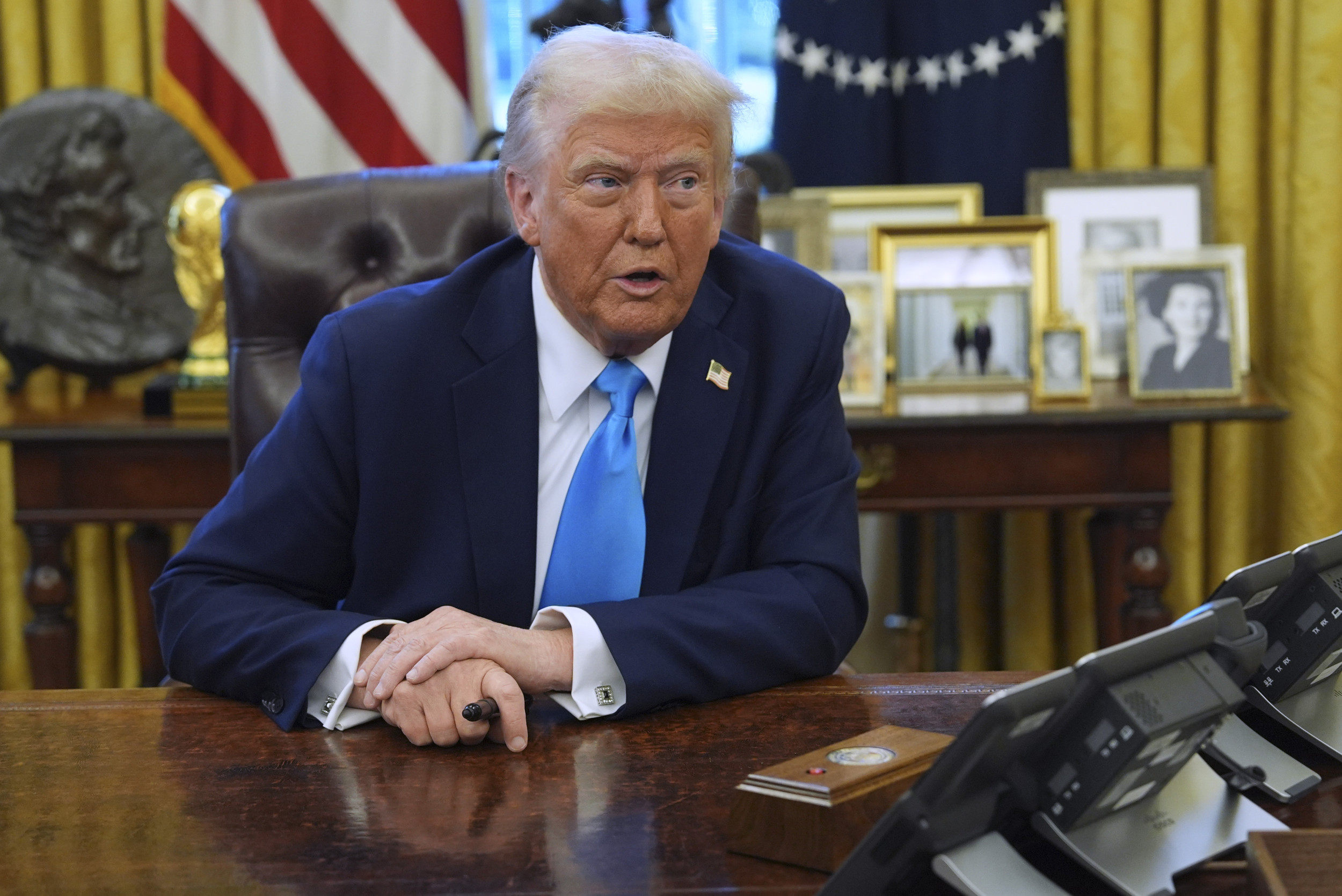The so-called “Nostradamus” of U.S. elections has admitted he was wrong after former—and now future—president Donald Trump won the 2024 contest, contradicting his prediction that Vice President Kamala Harris would emerge victorious.
Historian Allan Lichtman’s model, “The Keys to the White House,” has correctly predicted the outcome of nine out of 10 of the presidential elections prior to this year, earning him the comparison to the 16th century French reputed seer. The model hinges on 13 keys, all true/false statements, that evaluate the standing on the incumbent party based on a variety of factors which include the economy, foreign policy, and domestic politics.
If six or more are false, the incumbent party is predicted to lose the election. If five or fewer are false, it is expected to win. In September, Lichtman officially forecast that Harris would win the election, based on the keys.
But Trump won by a comfortable margin.
Pedro Ugarte/AFP via Getty Images
In a livestream posted to his YouTube channel on Thursday, Lichtman admitted he was wrong.
“But I was far from the only forecaster to be wrong. Most other models got it wrong,” Lichtman said. “It wasn’t just a singular failure of the keys. It was much broader than that.”
Other forecast models rated the race as essentially a toss-up, but very slightly favored Harris.
On the eve of the 2024 election, polling aggregation site FiveThirtyEight’s model, owned by ABC News, gave Harris a 50 percent chance of winning the election and Trump a 49 percent chance.
The Economist‘s election forecast, which used similar techniques to FiveThirtyEight, also showed a close race on the election’s final day, giving Harris a 56 percent chance of winning and Trump a 43 percent chance, with a one percent chance of a draw.
Statistician Nate Silver said in late September that Lichtman’s keys predicted a Trump victory, to which Lichtman responded that Silver didn’t “have the faintest idea how to turn the keys.”
The professor said during Thursday’s YouTube livestream that the keys themselves were not the problem, and that he did not think he called any of the keys incorrectly.
“My events are based on history,” Lichtman said.
The American University professor said it was always possible that events could be so significant in a given election to change the course of history.
“I think that’s what’s happened here,” he said.
Lichtman said the Democratic Party “trashed” their sitting president, something he said has never happened in American history.
“If you’re going to trash your sitting president so badly, that is going to taint any nominee associated with that failed president and especially if you’re choosing his vice president.”
Lichtman also said the fact that Harris had participated in no primaries and caucuses was “unprecedented.”
“I called they key as best I could, given an unprecedented situation because 99 percent of the delegated united behind Harris, but I had to deal with an unprecedented situation.”
The extraordinary of circumstances of the Harris nomination could have affected the prediction, Lichtman said.
“The keys are premised on the thesis that the electorate as a whole, pragmatically decides whether the party holding the White House is strong enough and has governed well enough to get another four years,” he said.
He said this election was marred by “disinformation” viewed on an unprecedented scale, “which makes it very difficult for a rational, pragmatic electorate to operate.”
Newsweek has contacted Lichtman for comment via email outside of standard working hours.
“The Keys to the White House” has been long criticized by some political scientists, statisticians and journalists for being “prone to bias and subjectivity.”
Lichtman has defended his model against those arguments but previously told Newsweek, “I am always open to new possibilities and not so arrogant to assume that the Keys will hold forever.”
What Are Allan Lichtman’s Keys to the White House?
The 13 keys, as set out by the historian in a 2012 article for the Social Education journal, are these:
- Party mandate: After the midterm elections, the incumbent party holds more seats in the U.S. House of Representatives than after the previous midterm elections.
- No primary contest: There is no serious contest for the incumbent party nomination.
- Incumbent seeking reelection: The incumbent party candidate is the sitting president.
- No third party: There is no significant third party or independent campaign.
- Strong short-term economy: The economy is not in recession during the election campaign.
- Strong long-term economy: Real per capita economic growth during the term equals or exceeds mean growth during the previous two terms.
- Major policy change: The incumbent administration effects major changes in national policy.
- No social unrest: There is no sustained social unrest during the term.
- No scandal: The incumbent administration is untainted by major scandal.
- No foreign or military failure: The incumbent administration suffers no major failure in foreign or military affairs.
- Major foreign or military success: The incumbent administration achieves a major success in foreign or military affairs.
- Charismatic incumbent: The incumbent party candidate is charismatic or a national hero.
- Uncharismatic challenger: The challenging party candidate is not charismatic or a national hero.
Do you have a story we should be covering? Do you have any questions about the 2024 presidential election? Contact [email protected]














